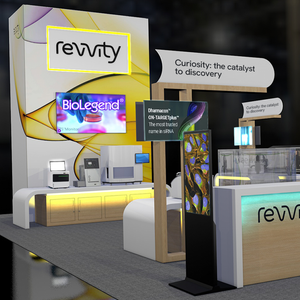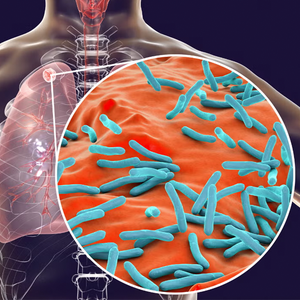

HTRF Phospho-NDRG1 (Thr346) Detection Kit, 10,000 Assay Points
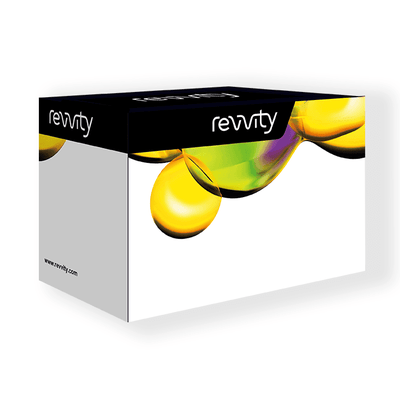

HTRF Phospho-NDRG1 (Thr346) Detection Kit, 10,000 Assay Points
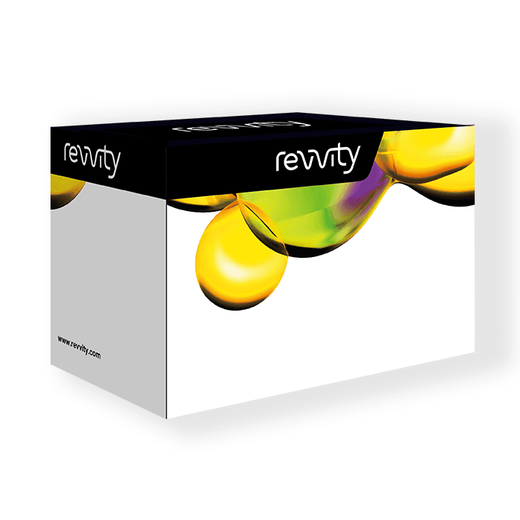


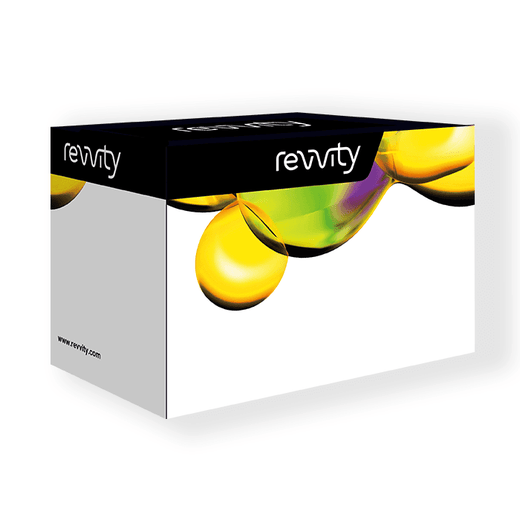


The Phospho-NDRG1 (Thr346) cellular assay kit is optimal for measuring phosphorylated NDRG1 at Thr346 and is a powerful tool for cancer research.
| Feature | Specification |
|---|---|
| Application | Cell Signaling |
| Sample Volume | 16 µL |
The Phospho-NDRG1 (Thr346) cellular assay kit is optimal for measuring phosphorylated NDRG1 at Thr346 and is a powerful tool for cancer research.



HTRF Phospho-NDRG1 (Thr346) Detection Kit, 10,000 Assay Points



HTRF Phospho-NDRG1 (Thr346) Detection Kit, 10,000 Assay Points



Product information
Overview
The Phospho-NDRG1 (Thr346) cellular assay kit is optimal for measuring phosphorylated NDRG1 at Thr346, and is a powerful tool for cancer and angiogenesis research. NDRG1 is upregulated by HIF1-alpha under hypoxic conditions often associated with aggressive tumor progression. NDRG1 is a metastasis suppressor that works by blocking the angiogenesis signaling pathway,
Specifications
| Application |
Cell Signaling
|
|---|---|
| Brand |
HTRF
|
| Detection Modality |
HTRF
|
| Lysis Buffer Compatibility |
Lysis Buffer 4
Lysis Buffer 5
|
| Molecular Modification |
Phosphorylation
|
| Product Group |
Kit
|
| Sample Volume |
16 µL
|
| Shipping Conditions |
Shipped in Dry Ice
|
| Target Class |
Phosphoproteins
|
| Technology |
TR-FRET
|
| Therapeutic Area |
Oncology & Inflammation
|
| Unit Size |
10,000 Assay Points
|
Video gallery

HTRF Phospho-NDRG1 (Thr346) Detection Kit, 10,000 Assay Points

HTRF Phospho-NDRG1 (Thr346) Detection Kit, 10,000 Assay Points

How it works
Phospho-NDRG1 (Thr346) assay principle
The Phospho-NDRG1 (Thr346) assay measures NDRG1 when phosphorylated at Thr346. Contrary to Western Blot, the assay is entirely plate-based and does not require gels, electrophoresis or transfer. The Phospho-NDRG1 (Thr346) assay uses 2 labeled antibodies: one with a donor fluorophore, the other one with an acceptor. The first antibody is selected for its specific binding to the phosphorylated motif on the protein, the second for its ability to recognize the protein independent of its phosphorylation state. Protein phosphorylation enables an immune-complex formation involving both labeled antibodies and which brings the donor fluorophore into close proximity to the acceptor, thereby generating a FRET signal. Its intensity is directly proportional to the concentration of phosphorylated protein present in the sample, and provides a means of assessing the proteins phosphorylation state under a no-wash assay format.

Phospho-NDRG1 (Thr346) 2-plate assay protocol
The 2 plate protocol involves culturing cells in a 96-well plate before lysis then transferring lysates to a 384-well low volume detection plate before adding Phospho-NDRG1 (Thr346) HTRF detection reagents. This protocol enables the cells' viability and confluence to be monitored.

Phospho-NDRG1 (Thr346) 1-plate assay protocol
Detection of Phosphorylated NDRG1 (Thr346) with HTRF reagents can be performed in a single plate used for culturing, stimulation and lysis. No washing steps are required. This HTS designed protocol enables miniaturization while maintaining robust HTRF quality.

Assay validation
Detection of phospho-NDRG1 (Thr346) on heLa cells
Different cell densities of HeLa cells were plated in 96-well plates and incubated overnight. Cells were stimulated with increasing concentration of 25 µL of AZD8055 (an ATP-competitive mTOR inhibitor) for 2h at 37°C - 5% CO2. After stimulation, cells were lysed with 25µL of lysis buffer 4X for 30 min at RT under gentle shaking. 16 µL of lysate were transferred into a 384-well sv white microplate and 4 µL of the HTRF phospho-NDRG1 (Thr346) detection reagents were added. The HTRF signal was recorded after a overnight incubation at room temperature.

Detection of phospho-NDRG1 (Thr346) on HeLa cells
Different cell densities (100K, 50K, 25K and 12.5K) of HeLa cells were plated under 50µL in 96-well plate in presence of 40 µM of Dp44mT and incubated for 24h. Then, media was aspirated and cells were lysed with 50µL of lysis buffer 1X for 30 min at RT under gentle shaking. 16 µL of lysate were transferred into a 384-well sv white microplate and 4 µL of the HTRF phospho-NDRG1 (Thr346) detection reagents were added. The HTRF signal was recorded after a overnight incubation at room temperature.

Resources
Are you looking for resources, click on the resource type to explore further.
This guide provides you an overview of HTRF applications in several therapeutic areas.
SDS, COAs, Manuals and more
Are you looking for technical documents related to the product? We have categorized them in dedicated sections below. Explore now.
- LanguageEnglishCountryUnited States
- LanguageFrenchCountryFrance
- LanguageGermanCountryGermany
- Resource TypeManualLanguageEnglishCountry-


How can we help you?
We are here to answer your questions.





